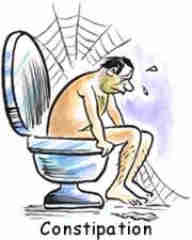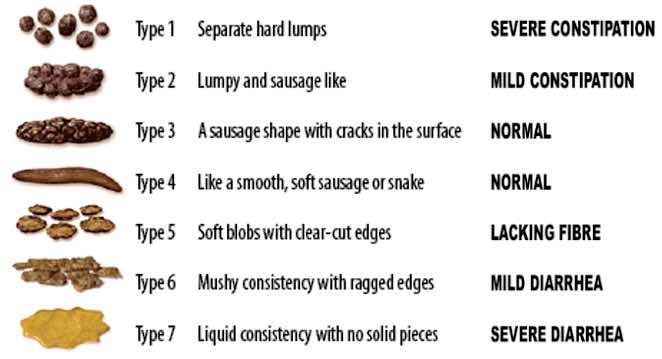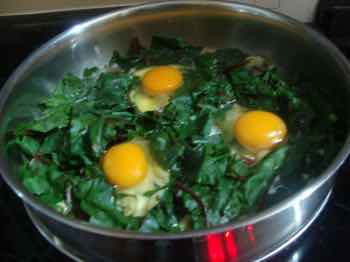Over the counter treatments for chronic idiopathic constipation
Over the counter treatments for chronic idiopathic constipation should start at the greengrocer; the cost is low, side-effects are few and the likelihood of success is high.
Constipation is defined in the Oxford dictionary as a condition where there is difficulty emptying the bowels, movements are infrequent and the whole affair is usually associated with hardened faeces. It may be painful with a bloated, uncomfortable feeling.
These hardened faeces may be like rabbit pellets or very large torpedoes. Bleeding is not uncommon; fresh red blood.
The NIH defines it as two or less bowel movements per week. It affects a third of adults over 60 in countries where the "industrial diet" is prevalent; low in fibre.
The American Journal of Gastroenterology defines Chronic Idiopathic Constipation as lasting more than twelve weeks, excluding three conditions.
- An obstruction, usually caused by a malignancy.
- A medication side-effect.
- Inflammatory bowel disease.

First line of treatment; more fibre
Lead author of the new guidelines, Dr Lin Chang stresses, after a systematic review of all agents that the first line of treatment should be more fibre[1].
So the counter over which one should be leaning is to be found in the greengrocer and not the pharmacy.
Drug-wise the strongest recommendations were for polyethylene glycol, sodium picosulfate and linaclotide; plecanatide and prucalopride too. Medication could cost over $500 per month.
Fibre
Fibre is of two sorts; firstly that which is soluble in water. Pectin for example, that is found in fruit helps form a thick viscous liquid in the colon. Unrefined oats is a good source of beta-glucans.
Insoluble fibre on the other hand adsorbes water into the stool making it softer and easier to pass. It is found mainly in whole grains, nuts and seeds. It increases the faecal weight and shortens the transit time.
Ideal on the Bristol stool scale is a long, smooth and soft snake-like sausage[2].

Medical costs
The medical costs of the management of constipation are not inconsiderable. According to Chang et al in 2023 it amounts to $2,000 to $7,500 per year; and the effect on quality of life is comparable to that of pulmonary disease, diabetes and depression.
The researchers found that a significant proportion of patients were not satisfied with the medical treatment, trying multiple over the counter drugs.
Fibre
Surprisingly all the studies on the use of fibre were more than 30 years old, sample sizes were small and results were inconclusive. Psyllium was the most effective; a soluble fibre that may increase relief of symptoms but made no difference to stool consistency.
Dietary fibre is best obtained from vegetables, fruit and legumes; whole grains are more difficult to locate on grocery store shelves.
Start slowly
It is vitally important that you start adding more fibre to your diet slowly; don't go like a bull at a gate. It may cause bloating, pain and even an obstruction.
The recommended daily allowance is around 35 grams per day; only 5% of those enjoying typical grocery store food achieve it. It's no mystery that we are suffering the misery that is constipation.
Start slowly!
Fluid intake
When comparing folk the researchers found that those in the lowest quartile for fluid intake were more likely to be constipated.
On a personal note
Anecdotes carry no weight whatsoever. However as someone who has had a serious problem with constipation all my life, until I discovered the virtues of soluble fibre, I leave this with you for your consideration.
Insoluble fibre does not greatly help with my constipation. Even though we eat sourdough bread made with 100% wholemeal and freshly-ground flaxseed in our kefir smoothies, it appears to do little to alleviate the problem.
But greens three times a day instantly normalises my stool, producing the soft snake-like faeces we all desire; a bowel movement takes no more than a minute or two with no straining.
Greens are my "go-to" when I'm suffering; which is not often. Chronic idiopathic constipation, the diagnosis given for thirty years is a matter of the far distant past.
Eventually it turned out to be first sign of a chronic low level of dopamine in my blood stream; some chemical in childhood damaged a part of the brain called the Substantia Nigra. The happy hormone is the precursor of the catecholamines that stimulate the colon. It was only after a unpleasant tremor in the right hand began that I was able to connect the dots; fortunately it is being very successfully managed by five broad beans twice a day.
Broad beans are the only source of pharmaceutical amounts of L-dopa, the precursor of the happy hormone.
Breakfast
Eggs Florentine for breakfast is the first of my over the counter treatments for chronic idiopathic constipation. It comes in many variations; this one has added beet-tops in addition to the spinach.

Eight colors Eggs Florentine was my favourite for many years.
It has now been supplanted by Eggs Parkinson's Disease which incorporates broad beans.
Lunch
A green salad for lunch is the second of my over the counter treatments for chronic idiopathic constipation. To it we add as many coloured vegetables as we can grow in our garden.

Research reveals that those eating 7 or more coloured foods every day have a 35% lower all-cause of death; that's massive. In part it is because they have the fibre that deals with stubborn constipation.
Dinner
For dinner the third of my over the counter treatments for chronic idiopathic constipation will be a plateful of broccoli, kale or more spinach.

Kale is a much disliked vegetable; for good reason. The leaves must be young and freshly-picked; there is no other way to enjoy it. That means you must grow it yourself; it's easy.
And finally I must put in a plug for good old-fashioned beets; raw, pressure-cooked or pickled they are a treat for the constipated colon.
Which counter?
So which counter do you head for first when you are not well? For chronic idiopathic constipation in my book always start with that at the greengrocer. For the cost of 3 spinach leaves at breakfast, 5 lettuce for lunch and a few broccoli florets for supper you will have cured your problem. I know because I've proved it; for myself.
You will have to test these greens three times a day for yourself.
In fact better still grow them in your own garden. All of these photos are taken from food produced in the main in our backyard; freshly-picked, organic and free from pesticides.
Additional benefits
If you choose your over the counter treatments for chronic idiopathic constipation at the greengrocer's door you will find there are other additional benefits to be had.
- Spinach and kale are the two richest sources of lutein; you are most unlikely to suffer from adult-onset macular degeneration.
- The lettuce is a rich source of folate; that gives protection against a host of diseases. And if your kids also eat it they will perform better in school. Women of child-bearing age will not have a baby with cleft lip or spina bifida vera.
- The broccoli for supper is the best known source of glucoraphanin and selenium; protection against diabetes and prostate cancer.
Side effects
The list of potential side effects mentioned by Chang from taking the recommended medicines makes sobering reading. It is little wonder the panel recommended starting with more fibre.
My advice is to start specifically with the fibre in your greens; three times a day in small amounts to begin with, increasing weekly as your tum comes to terms with the new status quo.
Over the counter treatments for chronic idiopathic constipation
In short start your journey with the over the counter treatments for chronic idiopathic constipation at the greengrocer; and reckon that it is probably with you for life, not necessarily three times a day.
The word idiopathic describes a disease of unknown cause. I would suggest that's a misnomer; chronic industrial-diet constipation would be a far better term. Those eating food derived mainly from the grocery store are consuming less than 50% of the recommended amount of fibre[3].
Constipation can never be described as idiopathic until a proper evaluation by a gastroenterologist has been done; a colorectal tumour has to be ruled out if increased fibre brings no benefit. In fact perhaps that should be the first port of call.
Another consideration is that chronic constipation is often the first impending sign of Parkinson's Disease; the catecholamine hormones are are essential for stimulating the muscles of the colon. This is usually then followed by upper GI symptoms, usually long before the tremors and rigidity begin; mucosal erosions allow toxic substances to progress to the brain damaging an important nucleus called the Substantia Nigra.
- Stomach pain and Parkinson's Disease
When browsing these links use right click and "Open Link in New Tab", or you may get a bad gateway signal.
- Home
- Right choices
- Over the Counter Treatments for Chronic Idiopathic Constipation
Did you find this page useful? Then perhaps forward it to a suffering friend. Better still, Tweet or Face Book it.
